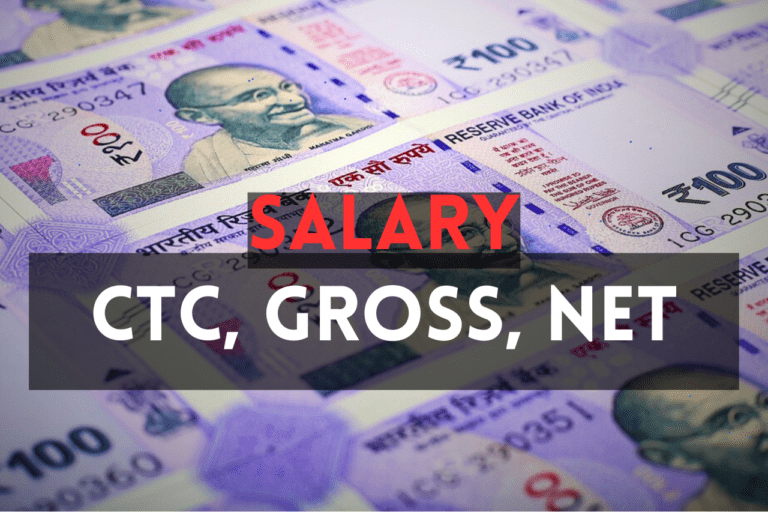7 Thumb Rules – Personal Financial Planning
What is Personal financial planning?
Personal financial planning is like making a chart for your money, how much money you have and where it is going.
You figure out what you want to do with your money, like saving for a big purchase or getting ready for the future.
Then you make a plan to reach those goals by deciding how much to save and how to invest.
And taking charge of your finances and making sure you are ready for whatever comes your way.
Reasons why Personal Financial Planning is Advantageous
Know Where Your Money Goes:
Be aware of how much money you earn and where it goes each month. This helps you see if you are spending too much on things you don’t need.
Save More Money:
Make a plan to save more of your income for things like emergencies, big purchases or your future retirement.
Spend Less:
Find ways to cut back on your spending by looking at where you can save money on things like groceries, entertainment or eating out.
Stay Financially Secure:
Plan for unexpected events like losing your job or getting sick by having savings set aside and managing any debts you have.
Protect Yourself and Your Family:
Make sure you have the right insurance to cover things like health emergencies or accidents.
Also plan for the future by writing a will to protect your assets and provide for your loved ones.
11 Factors Affecting Financial Plan
Ways to Manage your Personal Financial Planning:
Track Your Money:
Keep an eye on how much you earn and spend each month.
Make a list of all your expenses, like rent, groceries and bills to see where your money goes.
Cut Back on Unnecessary Spending:
Look for ways to spend less on things you don’t really need, like eating out or buying clothes you won’t wear often.
Saving on these can help you put more money towards important stuff.
Find Money Saving Opportunities:
Search for discounts, use coupons or buy in bulk to save money on everyday things like groceries, utilities and transportation.
Build an Emergency Fund:
Set aside some money for emergencies, like medical bills or unexpected home repairs.
This fund can help you avoid debt when sudden expenses pop up.
Plan for Retirement:
Start thinking about how you will support yourself when you stop working.
Consider setting up a retirement account and putting money into it regularly.
Stick to World Famous Rule – 50-30-20:
Split your income into three parts: 50% for basic needs like rent and groceries, 30% for wants like dining out or entertainment and 20% for savings.
Set Money Aside for Your Goals:
Decide what you want to save for, like buying a house or going on vacation and put aside money from your budget each month to reach those goals.
Invest Wisely for Your Future:
Consider investing your money in things like stocks, mutual funds or real estate to help it grow over time.
Talk to a financial advisor (taxation lawyer or CA) to find the best options for you.
Personal Financial Planning – Chart for people earning between Rs.50,000 to Rs.1,50,000 per month.
| Personal Financial Aspect | Thumb Rule | Monthly Investment Range |
| Managing Money and Keeping Track | Divide income: 50% for basics, 30% for wants, 20% for savings & investments | Rs. 25,000 (basics), Rs. 15,000 (wants), Rs. 10,000 (savings & investments) |
| Emergency Savings | Save 3-6 months living expenses for emergencies | Rs. 1,50,000 – Rs. 3,00,000 |
| Dealing with Debts | Keep debt-to-income ratio below 36% | Allocate extra funds for high-interest debt repayment |
| Planning for Retirement | Save 15% of income for retirement | Rs. 7,500 – Rs. 22,500 (assuming income of Rs. 50,000 – Rs. 150,000) |
| Getting the Right Insurance | Test out coverage meets basic needs and liabilities | Seek personalized advice from insurance agent |
| Spreading Out Your Investments | Spread investments across various assets | Allocate funds based on risk tolerance and financial goals |
| Planning Your Estate (Property) | Create a will and specify beneficiaries | Seek guidance from a legal advisor for broader planning |
Explanation for Personal Financial Planning Chart
Managing Money and Keeping Track:
What to do: Split your earnings into three parts – half for basics like rent and groceries, 30% for things you want but don’t need and 20% for saving and investing.
How much to save: Set aside Rs. 25,000 for basic needs, Rs. 15,000 for wants, and Rs. 10,000 for savings and investments every month.
Emergency Savings:
What to do: Save enough money to cover your expenses for 3-6 months in case of emergencies like medical bills or unexpected repairs.
This is one of the most important parts of Personal Financial Planning.
How much to save: Aim to save between Rs. 1,50,000 to Rs. 3,00,000 in your emergency fund.
Dealing with Debts:
What to do: Try to keep your debts below 36% of your earnings.
If you have debts with high interest rates than try paying them off faster.
How much to allocate: Use any extra money to pay off your debts quicker.
Planning for Retirement:
What to do: Start saving for your retirement now so you can enjoy life when you get older.
Aim to save at least 15% of what you earn.
How much to save: Try to put away between Rs. 7,500 to Rs. 22,500 every month for your retirement.
Getting the Right Insurance:
What to do: Make sure you have enough insurance to cover important things like your health and your home.
Talk to an insurance agent to find out what you need.
How much to invest: The amount you pay for insurance depends on what you need and what you can afford.
Spreading Out Your Investments:
What to do: Spread your investments across different things like stocks, bonds and property to reduce your risks.
How much to invest: Set aside some money regularly for investing based on what you can afford and what your goals are.
Planning Your Estate (Property):
What to do: Plan ahead for what will happen to your money and property when you are no longer around.
Make a “will” and decide who will get what.
How much to invest: There is no set amount but you may need to pay for legal advice to help you plan your estate.
Conclusion for Personal Financial planning
We tried to cover all the basics of personal financial planning in a clear and simple way that anyone can understand. Personal financial planning is really important for managing your money sensibly to secure your future. If one follows the easy steps outlined in this guide, you can take control of your finances and work towards your goals. Whether it’s saving for emergencies, planning for retirement or protecting your family with insurance and property planning, starting early and staying committed is the “mantra”. Every little step you take today will help you build a better tomorrow.
5 Tried and Tested Passive Income Ideas in India | Latest
Disclaimer: The information provided in this blog post on 'Grow Max Roll' is for educational and knowledge purposes only. The author and the website are not financial advisors, and the content should not be considered as professional financial advice. Readers are encouraged to seek the guidance of qualified financial professionals before making any financial decisions or investments. The author and the website 'Grow Max Roll' shall not be held responsible for any actions taken based on the information provided in this blog post.






